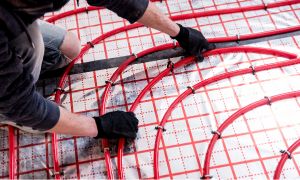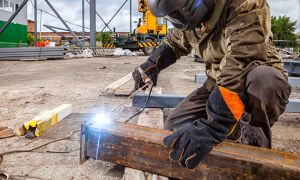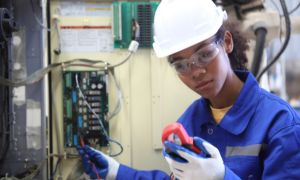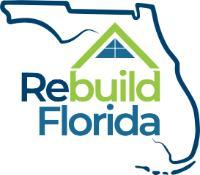Get Certified in as Little as 8 Weeks
On October 10, 2018, Hurricane Michael struck near Mexico Beach in Bay County, reaching Category 5 status. It then swept northeast, affecting numerous Florida counties before crossing into Georgia and the southeastern United States. As one of the most powerful hurricanes on record, its impact led to unprecedented devastation across Florida's Panhandle, severely affecting homes, businesses, and infrastructure. The surge in construction work demand intensified shortages in skilled labor within the region.
The main objective of TSC's Rebuild Florida initiative is to provide no-cost training to eligible individuals, aiming to alleviate the shortage by imparting skills in diverse construction trades focusing on low to moderate-income students.
To be eligible for this program, you must be:
- Authorized to work in the United States
- At least 18 years old
- Able to provide supporting documents or alternative forms (Application Document Checklist)
Our Programs
 Drone Technology
Drone Technology
This intensive 8-week, hands-on course is divided into three key parts, providing comprehensive training in drone technology, flight operations, and media editing.
- 2023 Median Salary: $93,000 per year | $44 per hour
- Program Length: 8 Weeks
- Locations: Wakulla and Gadsden Counties
Program Details
Unmanned Ground Flight School (FAA 107 Course)
In this eight-week course, students will learn the rules and regulations related to Small Unmanned Aerial Systems (sUAS) rating privileges, limitations, and flight operations. This period of instruction is to prepare students to be licensed certificated Part 107 sUAS Remote Drone Pilot for commercial, business, or personal use. Students who complete this class will be able to demonstrate basic knowledge of airspace classification, operating requirements, aviation weather sources and the effects weather has on sUAS performance. Students will be expected to complete a mock examination at the end of class in preparation for taking the FAA Part 107 licensing exam.Unmanned Vehicle Systems Flight Operations
In this seven-week course, students will learn how to fly drones for commercial business use. Students who complete this class will have the basic knowledge of how to fly a drone. Expect to complete mock roof/solar panel inspections, at least 15 hours of flight time, access to practice on our drones outside of class time, and much more.
Introduction to Media Editing for UAVs
In this six-week course, students will learn basic techniques for editing digital videos and photos using Unmanned Aerial Vehicles for the purpose of commercial use. Students who complete this class will have knowledge of how to set up shot selection and color correction, as well as other important skills to edit and create videos for their customer base. Minimum required computer specs include Intel Core i7 or AMD Ryzen 7, 16GB RAM or better, 4GB VRAM GPU, SSD, or RAID Media Storage.
Participants who successfully complete the Drone Technology classes can earn up to the following certifications:
- FAA 107 Remote Pilot Certification
- Agriculture Associate AEST Certification
- Unmanned Aircraft Systems in Agriculture Specialist AEST Certification
 Construction Technologies
Construction Technologies
This immersive, hands-on course spans five months and is divided into four key sections, providing students with comprehensive training in core construction trades.
- 2023 Median Salary: $44,310 per year | $21.30 per hour
- Program Length: 5 Months
- Locations: Leon, Wakulla, and Gadsden Counties
Program Details
Core Construction Principles
Students will explore the essential principles of carpentry, electrical work, and plumbing. The curriculum covers fundamental construction practices, safety protocols, and industry standards, equipping students with a solid foundation in these trades.
Carpentry
Through practical experience, students will learn foundational carpentry techniques such as framing, finishing, and woodworking, with a strong focus on real-world applications in construction projects.
Electrical
This section introduces students to basic electrical concepts, safety practices, and hands-on electrical installation training. Students will master wiring, circuits, and electrical systems commonly used in construction.
Plumbing
Participants will be trained in the basics of plumbing, including pipe installation, fixture connections, and troubleshooting common issues. Practical exercises will help solidify their theoretical knowledge.
Participants who successfully complete the Construction Technology classes can earn up to the following certifications.
- NCCER Core Certification
 Commercial Driving License (CDL)
Commercial Driving License (CDL)
This course will focus on broad, transferable skills and will stress understanding and demonstration of the following elements of the Commercial Vehicle Driving industry: planning, management, labor issues, community issues, and health, safety, and environmental issues.
- 2023 Median Salary: $54,320 per year | $26.12 per hour
- Program Length: Full Time: 8 Weeks (days) | Part Time: 16 Weeks (nights)
- Locations: Leon County
Program Details
Students study vehicle safety, accident prevention, operating regulations, cargo handling, documentation procedures, pre-trip preparation, vehicle inspection, maintenance, service, control procedures, backing, coupling, uncoupling, maneuvering, road and hazardous driving skills, and licensing requirements.
Participants who successfully complete the Commercial Driving License (CDL) program can earn the following certifications:
- Class A commercial driver's license (CDL)
 Heating, Ventilation, Air Conditioning, and Refrigeration
Heating, Ventilation, Air Conditioning, and Refrigeration
This course provides hands-on training to help prepare students to enter the HVAC field or for those already in the HVAC field that want to continue their education.
- 2023 Median Salary: $57,300 per year | $27.55 per hour
- Program Length: Full Time: 6 Months | Part Time: 12 Months
- Locations: Gadsden County
Program Details
Students will be trained to become HVAC helpers, mechanic assistants, mechanics or technicians and will explore the various career options to determine what exit point best fits their needs.
Participants who successfully complete the HVAC program can earn the following certifications:
- HVAC/R 1
- HVAC Excellence Employment Ready Electrical
- HVAC Excellence Employment Ready Air Conditioning
- HVAC Excellence Employment Ready Heat Pump
- EPA608
 Welding Technology
Welding Technology
This course provides hands-on training to prepare students to enter employment in the welding industry or continue their education. Students will learn the requirements of a professional welder.
- 2023 Median Salary: $48,940 per year | $23.53 per hour
- Program Length: Full Time: 9 Months | Part Time: 18 Months
- Locations: Leon County
Program Details
The content emphasizes workplace safety and organization, basic manufacturing processes, metal identification, basic interpretation of welding symbols, oxyfuel gas cutting practice, plasma arc cutting principles, and basic shielded metal arc welding (SMAW).
Participants who successfully complete the Welding Technology program can earn the following certifications:
- American Welding Society (AWS) 3G and 4G
- Option of: AWS GMAW 3G and 4G, AWS FCAW 3G and 4G, or AWS GTAW 3G and 4G
 Introduction to Electrical
Introduction to Electrical
The curriculum focuses on hands-on practical applications involving installing and maintaining electrical wiring and equipment, including motors, motor controls, and power and lighting systems in residential, commercial, and industrial settings.
- 2023 Median Salary: $61,590 per year | $29.61 per hour
- Program Length: Part Time: 6 Months
- Locations: Leon County
Program Details
Students will receive training in using diverse hand and power tools, construction, and electrical safety, in-depth study of electrical theory, and applying the National Electrical Code (NEC) to residential and commercial wiring. This program also covers a range of electrical test equipment, conduit threading, and bending, as well as wire pulling and installation.
Participants who successfully complete the Introduction to Electrical program can earn the following certifications:
- OSHA-10
- Residential Wireman IEC Certifications
Documents
Below are additional documents that may be required by some applicants:
Program Application:
- TSC's Rebuild Policies and Procedures
- Rebuild Application | Solicitud De Asistencia | Aplikasyon Pou Asistans
Resources:
- Rebuild Florida Application Guide
- Application Document Checklist:
- Application Document Checklist
- Consent and Release of Personal Information | Consentimiento Y Divulgación De Información Personal | Konsantman Ak Divilge Enfmastyon Pèsonèl
- Fraud Acknowledgement Regarding False or Misleading Statements | Reconcimiento De Fraude Con Respecto A Las Declaraciones Falsas O Engañosas| Rekonesans Fwod Konsènan Deklarasyon Ki Fo Oswa Twonpè
- Subrogation Agreement | Acuerdo de subrogación | Akò Sibwogasyon
- Verification of Disability Form | Formulario De Verificación De Discapacidad | Fòm Verifikasyon Andikap
- Income Self-Attestation Form | Formulario de autocertificación de ingresos | Fòm Oto-Atestasyon Revni
- Zero Income Self-Attestation Form | Formulario de autocertificación de ingresos cero | Fòm Oto-Atestasyon Zero Revni
Administrative Resources:
-
TSC District Board of TrusteesCDBG-DR Workforce Recovery Training Program Policies and Procedures
Frequently Asked Questions
What is the Rebuild Florida Program?
Rebuild Florida is a Workforce Recovery Training Program focused on construction trades to support storm recovery activities, particularly repair and rebuilding of damaged homes and businesses. A majority of those served will be low-income individuals who may be most in need of workforce training to obtain and retain employment.
How much does the Rebuild Florida Program cost?
Nothing! The Rebuild Florida Program is free for eligible students.
How do I apply?
You can apply using the application portal here:WRTP Rebuild Florida Application. Alternatively, you can download a paper application here Rebuild Application | Solicitud De Asistencia | Aplikasyon Pou Asistans
If you are turning in a paper application, please scan and email a digital copy to [email protected] or hand in your application at one of these locations:
WD Building on TSC Main Campus 444 Appleyard Drive, Tallahassee, FL 32304
TSC Wakulla Center at 2932 Crawfordville Highway, Crawfordville, FL 32327
TSC Gadsden Center at 223 Pat Thomas Parkway, Quincy, FL 32351
What do I need?
Applicants will need: Personal Identification, Proof of Address, Proof of Work Authorization, and Proof of Income. Here is a Document Checklist listing acceptable documents for each of these categories.
I can’t prove my address. What can I do?
Homeless and recently incarcerated individuals are still eligible for our program. For more specific questions, reach out to any member of our staff. We will work with you to ensure your application can move forward.
I can’t prove my work authorization. What can I do?
Reach out to any member of our staff. We will work with you to ensure your application can move forward.
My household members or I can’t prove my income. What can I do?
If you have an alternate form of income to what is listed on the Document Checklist, you may fill out an Income Self-Attestation Form | Formulario de autocertificación de ingresos | Fòm Oto-Atestasyon Revni.
If you do not have an income, you can fill out a Zero Income Self-Attestation Form | Formulario de autocertificación de ingresos cero | Fòm Oto-Atestasyon Zero Revni.
I’m not low to moderate income. Am I still eligible?
Yes! Individuals with more than moderate income are still eligible for the free training the Rebuild Florida Program offers.
Can I apply to take classes in a county I don’t live in?
Yes. Please be aware that if you take a class in a county different from the one you live in, you will need to ensure you have reliable transportation.
Something came up and I can’t take classes this semester. Should I still apply?
Yes. We will hold onto your application until you are ready to begin classes.
What resources are available for speakers of other languages?
Our applications are available in Spanish and Creole upon request. Support services in other languages are provided on a case-by-case basis.
For Spanish speakers, contact Faraday Diaz at (850) 201-8327 or [email protected] for assistance.
Why is there a charge on my account?
After registering in classes for the Rebuild Florida Program, a charge will automatically appear on your student account. Please give our team time to process the charge and pay it for you. The Rebuild Florida Program is FREE for students, but only if you let us pay for your class.
This training is made available through the Florida Department of Economic Opportunity's Rebuild Florida Workforce Recovery Training Program. Launched with Federal Community Development Block Grant - Disaster Recovery funding will assist communities affected by Hurricane Michael, the Rebuild Florida Workforce Recovery Training Program trains Floridians in the construction trades necessary to support disaster recovery efforts. For more information visit www.RebuildFlorida.gov.
Get in Touch
Contact Us
For assistance with completing your application or to obtain more information, please contact:
Staff Assistant
Faraday Diaz
(850) 201-8327
[email protected]
Program Director
Ninafe Awong
[email protected]
General Email
Locations
Leon:
Main Campus
444 Appleyard Drive
Tallahassee, FL 32304
Gadsden:
Gadsden Center
223 S. Pat Thomas Parkway, Quincy, FL 32351
Florida Public Safety Institute (FPSI)
75 College Drive, Suite 203 Havana, FL 32333
Wakulla:
Wakulla Environmental Institute
170 Preservation Way, Crawfordville, FL 32327

